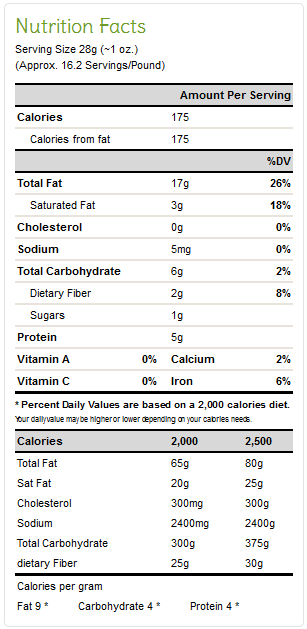Origin: Turkey, Georgia
Scientific Name: Corylus Avellana
Hazelnuts are thought to have been independently domesticated in Iran, Turkey and the Mediterranean, although Turkey has the most favourable climate for hazelnut production. Currently, Turkish hazelnut production accounts for 75% of the worlds hazelnut production, followed by the European Union and then America.
Hazelnut trees can grow as small multi stemmed bushes as found in Turkey and Europe, or large single trunk trees as in the US. Hazelnut trees are capable of producing a commercially viable harvest from around 6 years of age and should continue to produce until approximately 40 years old. For hazelnut orchards to propagate, at least two varieties must be planted so that cross-pollination can occur. Hazelnut trees are wind pollinated during the winter season, when the pollen is carried from the catkins to the small red female flowers. However these flowers are not completely fertilised until the spring, when the nuts begin to form. The in-shell nuts turn from green to hazel in colour during the hot summer months and fall to the ground in early autumn. They can be picked up mechanically or by hand.
Hazelnuts are sorted according to size whilst still in their shells and then dried to make the outer casing brittle. After this, they are passed through rollers for shelling. The kernels are then sized using sieves on gravity tables. They are aspirated, laser scanned and handpicked to remove extraneous matter, before being packaged.
Most producers of hazelnuts can now offer value added products such as whole roasted, roasted and chopped or hazelnut meal produced directly in their factories. Hazelnuts are extensively used in confectionary to make praline, truffles, and chocolate-coated products. Chopped hazels are used as cake and ice-cream toppings; they are also a popular ingredient in breakfast cereals and mueslis.
Hazelnuts are high in Vitamin E that is beneficial in protecting the skin from UV radiation, which can cause cancer and premature aging. They are also high in magnesium, which is good more muscles, bones and joint health.


